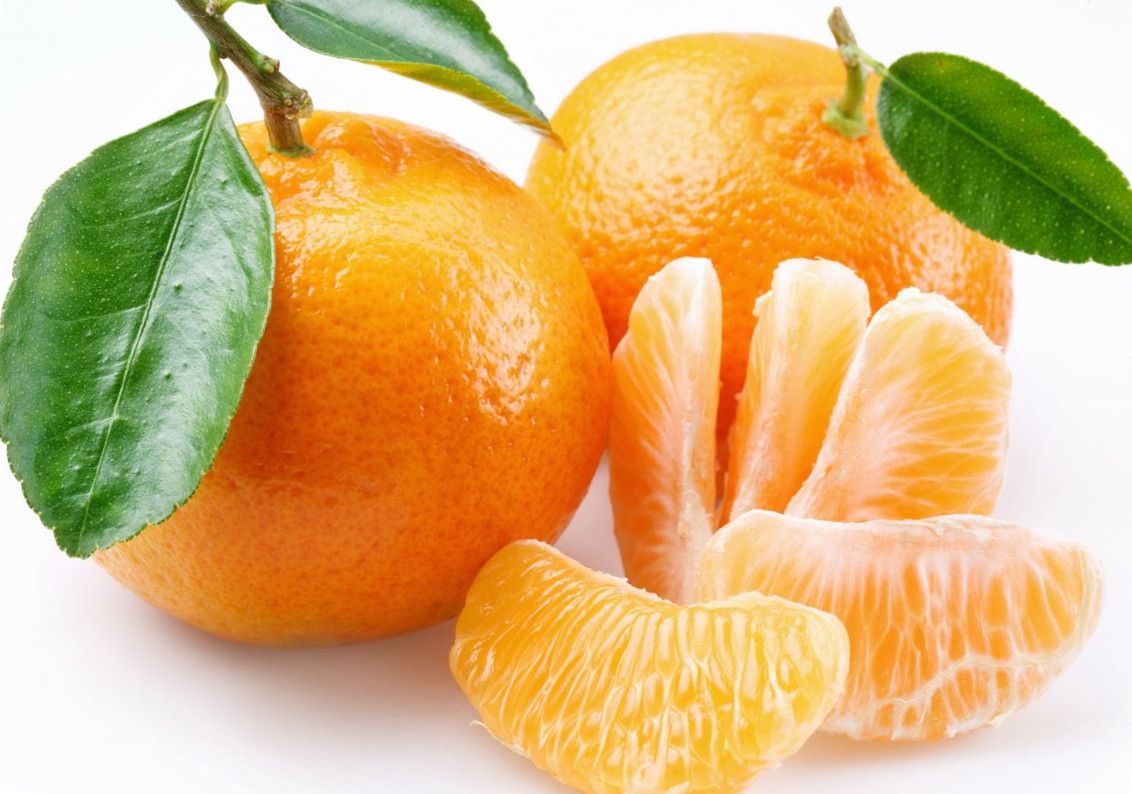How to boost immunity, enhance vision, and lower "bad" cholesterol using citrus fruits.
Citrus fruits are often associated with celebrations, making it hard to imagine St. Nicholas Day or New Year’s Eve without mandarins, oranges, and the like. Just the scent of mandarins can instantly evoke a festive mood. Citrus fruits are not only delicious and fragrant but also incredibly beneficial for health, ranging from boosting immunity to fighting cancer.
The following fruits are classified as citrus: oranges, mandarins, lemons, limes, grapefruits, as well as other hybrids and varieties: clementines, pomelo, kumquat.
Today, dietitian Wanda Levanuk will share the rich benefits of citrus fruits and explain why they should be included in the diet as often as possible.
What are the benefits of citrus fruits?
They are rich in vitamin C, which strengthens the immune system. In 100 g of pomelo, there are 61 mg of vitamin C, in an orange – 60 mg, in a grapefruit – 45 mg, in kumquat – 43 mg, in lemon – 40 mg, in mandarin – 38 mg, and in lime – 29 mg.
“The high content of vitamin C helps reduce the risk of cataracts, supports the health of the eye's blood vessels, improves visual acuity, and aids the body in synthesizing collagen, which maintains skin elasticity, making it look healthy and youthful,” says the dietitian.
Citrus fruits are also rich in minerals: potassium, calcium, silicon, magnesium, as well as folic acid and beta-carotene, which are essential for the body.
All citrus fruits are a source of fiber, which improves digestion, helps you feel full longer, and supports weight loss. These products are particularly beneficial for individuals with irritable bowel syndrome.
The fiber in citrus fruits and flavonoids help raise the level of “good” cholesterol and lower the level of “bad” cholesterol.
These fruits contain compounds that can prevent cancer and assist in fighting cancers of the skin, breast, ovaries, colon, stomach, and lungs.
Citrus fruits are beneficial for the heart. For instance, mandarins contain a significant amount of glycosides that strengthen the heart. Research has shown that individuals who consume more citrus fruits have lower rates of heart disease and stroke.
Flavonoids in citrus fruits help prevent neurodegenerative diseases, such as Alzheimer's and Parkinson's diseases, which occur due to the breakdown of cells in the nervous system.
Orange
There are various varieties of oranges, with the navel orange being one of the best (named for the “navel” at the top of the fruit).
 9
9
Despite their high sugar content, oranges have a low glycemic index of 40-43. This is due to their high content of polyphenols and fiber, which help lower blood sugar levels. The vitamin C abundant in these fruits aids the body in strengthening immunity and absorbing iron, making it advisable to add them to meat dishes that are sources of iron. This fruit also helps detoxify the liver and gastrointestinal tract and strengthens your heart.
Mandarin
Mandarins contain magnesium, potassium, iron, and copper, which support the production of red blood cells and the absorption of iron.
 0
0
They are rich in flavonoids that help protect the body from free radicals and enhance cognitive functions. They contain substances that improve visual acuity. These fruits are excellent for the stomach as they aid in fat digestion, normalize intestinal function, and reduce inflammation in the liver and gallbladder. Mandarins are sweeter, so they are not recommended for individuals with diabetes.
Lemon
These fruits are rich in carbohydrates and water. Their calorie content is lower than that of other citrus fruits.
 1
1
The soluble fiber (pectin) found in lemons helps lower blood sugar levels by slowing the conversion of sugar and starch. It is no wonder that dietitians recommend starting the morning with a glass of lemon water. This boosts immunity, aids digestion, and positively affects the skin. Lemon water has a diuretic effect.
Lime
Its fruits are more beneficial than those of lemons. They are rich in vitamins C, A, B1, B2, as well as potassium, calcium, phosphorus, iron, and more.
 2
2
Lime strengthens immunity, makes it easier to cope with colds, and speeds up recovery. The pectin in this fruit helps eliminate toxic substances from the body. Lime is an excellent natural tranquilizer that soothes the nervous system, lifts the mood, and helps combat depression, irritability, and nervousness.
Grapefruit
This is a hybrid of pomelo and orange. In 230 g of grapefruit, there is 64% of the daily norm of vitamin C and 28% of the daily norm of vitamin A, along with 5% of daily potassium needs, which reduces the risk of high blood pressure.
 3
3
Grapefruit contains lycopene, which helps increase the level of “good” cholesterol and lower the level of “bad” cholesterol.
This fruit is recommended for those who want to lose weight. It has a low calorie count. Half a grapefruit (about 125 g) contains 52 kcal. Due to its high fiber content, grapefruit provides a feeling of fullness. It is the fiber that slows gastric emptying, extending digestion time.
Clementine
Clementine is a hybrid of mandarin and royal orange. It is sweeter than an orange but contains less sugar.
 4
4
Consuming clementines helps strengthen immunity, normalize digestion, prevent the development of type 2 diabetes, improve mood, and prevent insomnia. Clementines can be added to oatmeal, mixed with yogurt and nuts, or used to make smoothies. Adding clementine to brown rice results in a dish in Chinese style. The juice can be used to dress a salad with turkey or chicken.
How many citrus fruits can you eat in a day?
The dietitian emphasizes that moderation is key when consuming citrus fruits and that one should not eat them in excessive amounts. Healthy adults can consume up to 200 g of oranges per day (2 pieces), up to 300 g of mandarins (3-4 pieces), while children over 7 years can have up to 200 g (2-3 pieces).
People with diabetes can consume half a grapefruit or one orange (100 g), and it is better to choose sour mandarins – 2-3 pieces.
It is advisable to give citrus fruits to children after the age of one, following the introduction of major allergens, and to start with minimal doses.
Citrus fruits should not be consumed on an empty stomach. Before consumption, they must be thoroughly washed, as suppliers often cover them with chemicals for better preservation.
Who should be cautious with citrus fruits?
Those allergic to citrus fruits should consume them cautiously, especially if they have had previous issues with them. People with high stomach acidity, exacerbated gastritis or ulcers, gastroesophageal reflux disease (GERD), dysmetabolic nephropathy (especially with oxaluria), or pancreatitis should also limit their intake of sour fruits.
It is advisable to avoid eating grapefruit or drinking grapefruit juice if you are taking statins (medications that lower cholesterol), antihypertensive drugs (nifedipine), antihistamines, contraceptives, or cough suppressants (dextromethorphan), as grapefruit enzymes may neutralize the effects of these medications.
Recipes with citrus fruits
Citrus fruits can be eaten on their own or added to salads, pies, teas, fresh juices, etc. Here are three recipes that include grapefruit, lemon, and orange.